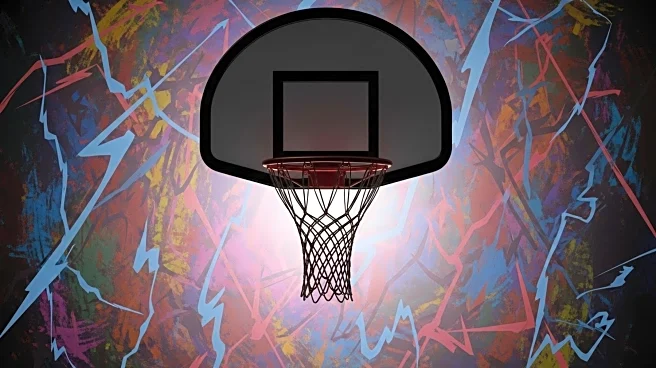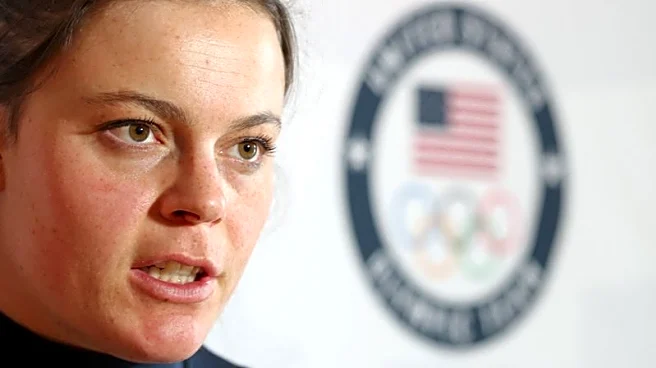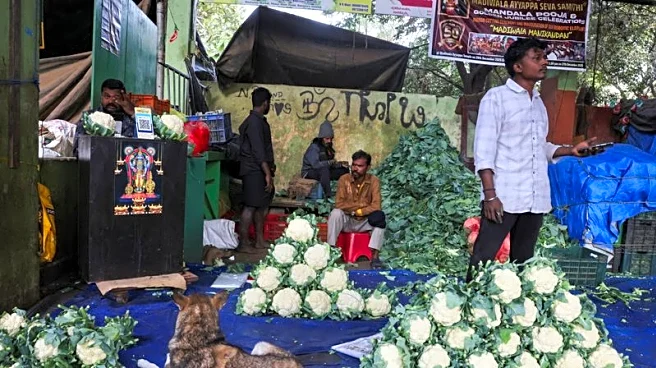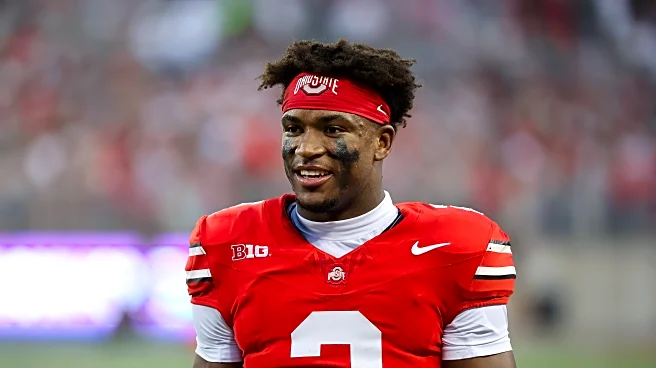What's Happening?
WNBA Commissioner Cathy Engelbert is under scrutiny following comments attributed to her by Minnesota Lynx star Napheesa Collier. During an exit interview, Collier claimed Engelbert suggested that Caitlin Clark should be grateful for her off-court earnings, implying that without the WNBA's platform, Clark would not have achieved her financial success. Clark, who joined the Indiana Fever after a successful college career at Iowa, has lucrative endorsement deals with major brands like Gatorade and Nike. Despite missing much of the 2025 season due to injury, Clark remains a significant figure in the league. The comments have sparked criticism from fans and media, with some suggesting that the WNBA benefits more from Clark's presence than vice versa.
Why It's Important?
The controversy highlights ongoing tensions between WNBA leadership and players, particularly regarding the league's role in promoting individual athletes. The remarks attributed to Engelbert have intensified discussions about the WNBA's leadership and its relationship with players. Caitlin Clark's case underscores the broader issue of how leagues and athletes mutually benefit from each other. The backlash could impact Engelbert's position as commissioner, especially amid ongoing collective bargaining agreement negotiations. The situation also reflects the challenges faced by women's sports leagues in balancing commercial interests with athlete recognition and compensation.
What's Next?
Cathy Engelbert is expected to address these issues in an upcoming press conference before the 2025 WNBA Finals. The outcome of the collective bargaining agreement negotiations will be closely watched, as it could influence the future dynamics between the league and its players. Stakeholders, including players, fans, and sponsors, will be keen to see how the WNBA navigates this controversy and whether it leads to changes in leadership or policy.
Beyond the Headlines
This incident may prompt a reevaluation of how women's sports leagues market their athletes and the narratives they promote. It raises questions about the equitable distribution of credit and financial rewards in sports, particularly for female athletes who have historically been underrepresented and undervalued. The situation could lead to broader discussions about gender equity in sports and the role of leadership in fostering a supportive environment for athletes.










